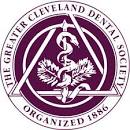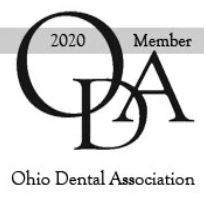Oral Surgery & Tooth Removal
If you and your dentist determine that you would benefit from having a tooth removed, we'll schedule an appointment for oral surgery. You can be assured of receiving the best dental treatments because the same caring professionals you know from your regular dental exams and teeth cleaning are a part of the same staff that will be performing your surgery.
Tooth Extractions
Good oral hygiene should always be practiced since the loss of a single tooth can have a major impact upon your oral health and appearance. Although dentists will use every measure to prevent tooth loss, it is sometimes necessary when teeth may need to be extracted. A tooth may need to be extracted for the following reasons:
- Severe decay
- Advanced periodontal disease
- Infection or access
- Orthodontic correction
- Malpositioned teeth
- Fractured teeth or roots
- Impacted teeth
After careful examination and treatment, the dentist may advise to have a tooth extracted. Before a tooth is removed, the dentist will take an x-ray in order to understand the shape and position of the tooth and surrounding bone. Based on the degree of difficulty, we may refer you to an oral surgeon.
For a simple extraction, we will first apply a local anesthetic to prevent pain and discomfort. The tooth will be loosened with a tool called an elevator and then removed with dental forceps. Once the procedure is complete, the area may be closed with one or two stitches. We will then provide you with aftercare instructions to help alleviate discomfort and ensure proper healing. You will be scheduled for a short return visit to check the healing process.
Wisdom Tooth Removal
Wisdom teeth are the last molars or "third molars" that develop on each side of the jaws. Wisdom teeth usually emerge in the back of the mouth between the ages of 18-25.
Wisdom teeth are a valuable asset to the mouth when they are healthy and properly positioned. Often, however, problems develop that require their removal. When the jaw isn't large enough to accommodate wisdom teeth, they can become impacted (unable to come in or misaligned). Wisdom teeth may also grow in sideways, emerge only part way through the gum or remain trapped beneath the gum and bone. Wisdom teeth extractions are most often performed because of an active problem such as pain, swelling, decay or infection, or as a preventive measure to avoid serious problems in the future. If impaction of one or more wisdom teeth is present, and left untreated, a number of potentially harmful outcomes can occur, including:
Damage to Nearby Teeth
Second molars (the teeth directly in front of the wisdom teeth) can be adversely affected by impacted wisdom teeth, resulting in tooth decay, (cavities), periodontal disease (gum disease) and possible bone loss.
Disease
Although uncommon, cysts and tumors can occur in the areas surrounding impacted wisdom teeth.
Infection
Bacteria and food can become trapped under the gum tissue, resulting in an infection. The infection can cause considerable pain and swelling.
Tooth Crowding
It has been theorized that impacted wisdom teeth can pressure other teeth and cause them to become misaligned (crowded or twisted). This theory isn't universally accepted by all dental professionals but can be a possible consideration by your dentist.
A wisdom tooth extraction is a relatively routine procedure. The dentist will numb the area in your mouth with a local anesthesia. After the tooth is removed, we will provide aftercare instructions to ensure proper healing. Some pain and swelling may occur but will normally subside after a few days. You should call our office, 216-661-2422, if you have prolonged or severe pain, swelling, bleeding, or fever.









